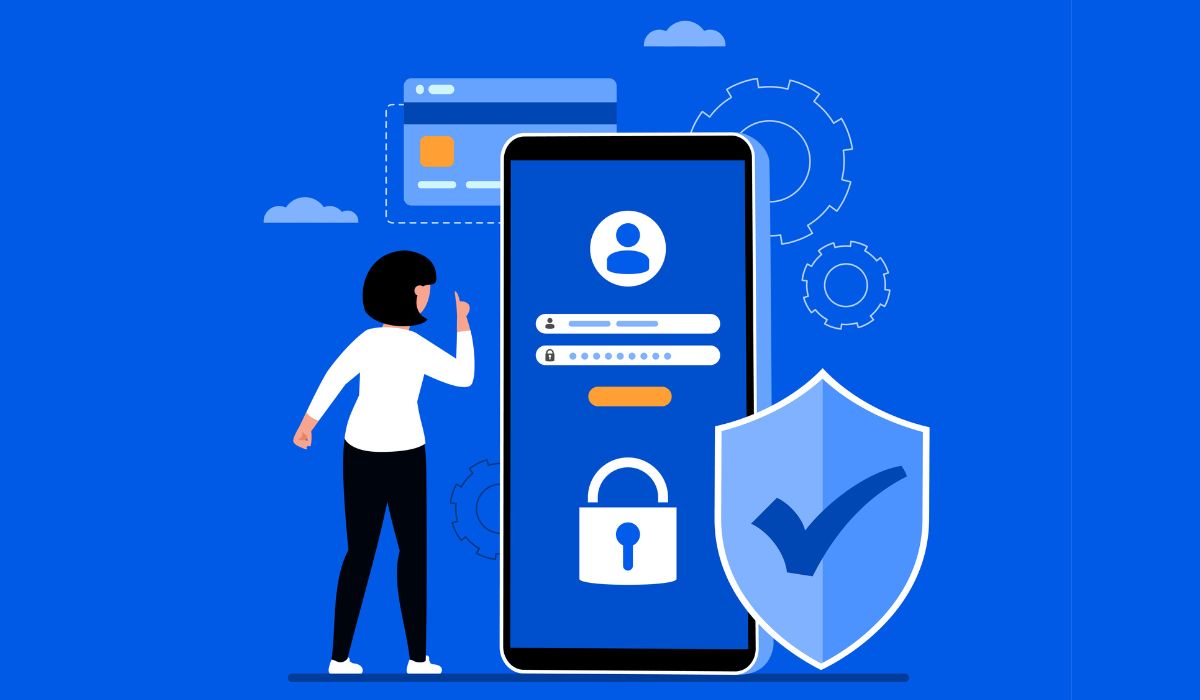Ads
In the digital age, where smartphones have become an extension of us, keeping our data and privacy secure has become paramount. In this context, the following article, "Digital Guardian: Keep Your Smartphone Safe with These Cybersecurity Tips to Protect Your Data and Privacy," becomes of great importance. 🛡️
Our privacy and data can be vulnerable to cybercriminals if we don't take appropriate security measures. This content offers a series of tips and recommendations to help you become a digital guardian, protecting your smartphone from any threats that could compromise your privacy.
Ads
In addition to the most common threats, we'll also explore those that, while less common, can cause significant damage. This information is valuable for any smartphone user, from the most experienced to those new to these technologies.
Cybersecurity is a constantly evolving field, and staying up-to-date on the latest trends and threats can make all the difference. This article offers an up-to-date and detailed overview of the state of cybersecurity in the smartphone space.
Ads
In short, if you're concerned about your smartphone security and data privacy, this is a must-read. Become a digital guardian and keep your smartphone safe with these cybersecurity tips. Let's go! 🔐💪
Password protection
One of the first lines of cybersecurity defense for your smartphone is a strong password. Simply having a password isn't enough; it must be unique and difficult to guess.

Setting strong passwords
A good password should include a combination of letters, numbers, and symbols. It should also be long enough: it's recommended to have at least eight characters. However, it doesn't have to be difficult to remember. Consider using a passphrase, which is a series of words that may be easy for you to remember, but difficult for someone else to guess.
Also, avoid using personal information such as names, birth dates, or common words, as these are easy for attackers to guess. A safe option is to combine uppercase and lowercase letters with numbers and special characters in an unpredictable order.
It's also a good idea to use a password manager to securely generate and store credentials, preventing password reuse across multiple accounts. Enabling two-factor authentication adds an extra layer of security, making unauthorized access difficult even if someone obtains your password.
Using a password manager
A password manager can be a valuable tool in protecting your data. These apps can generate and remember complex passwords for you, meaning you won't have to remember them all.
Software updates
Another key area for protecting your smartphone is through software updates. These updates often contain security patches that can protect your device from the latest threats.
Installing timely updates
It's important to install software updates as soon as they become available. These may contain fixes for security vulnerabilities that cybercriminals can exploit.
Use of trusted software
Additionally, you should make sure you only download apps and software from trusted sources. Apps from unknown or untrusted sources may contain malware that can harm your device or steal your data.
Phishing protection
Phishing is a common tactic used by cybercriminals to trick you into obtaining your personal information. It's vital to be aware of these tactics and how to protect yourself against them.
Awareness of phishing tactics
Phishing tactics can take many forms, but they often involve sending emails or text messages that appear to be from a legitimate source. These messages may ask you to provide personal information, such as your password or credit card number.
Using two-factor authentication
Two-factor authentication can provide an additional layer of security. This means that even if a cybercriminal obtains your password, they would still need access to another factor, such as your phone, to access your account.
Privacy settings
Finally, it's crucial to review and understand your smartphone's privacy settings. These settings can control what information you share with the apps and services you use.
Review privacy settings
Take the time to review the privacy settings on your smartphone and the apps you use. Make sure you're comfortable with the information you're sharing and consider limiting sharing if possible.
Using a virtual private network (VPN)
A VPN can help protect your privacy by encrypting your internet connection. This can prevent cybercriminals from seeing what you're doing online and obtaining your data.
Conclusion
In conclusion, protecting your smartphone and ensuring the security of your data and privacy is an essential commitment in the digital age. Having strong and unique passwords, using a combination of letters, numbers, and symbols, is the first line of defense. Additionally, a password manager can be a valuable tool for managing multiple complex passwords.
Keeping your device updated with the latest software versions is also crucial, as these updates often include security patches to protect against new threats. Additionally, always download apps and software from trusted sources to avoid malware that could harm your device or steal your data.
Be alert to phishing tactics and use two-factor authentication for an added layer of security. Finally, it's vital to review and understand your smartphone's privacy settings and limit the information shared. Using a VPN can also protect your privacy by encrypting your internet connection.
By remembering these tips and being proactive in protecting your device, you can enjoy the convenience of technology without sacrificing security and privacy. Keep your smartphone safe and become your own digital guardian.




